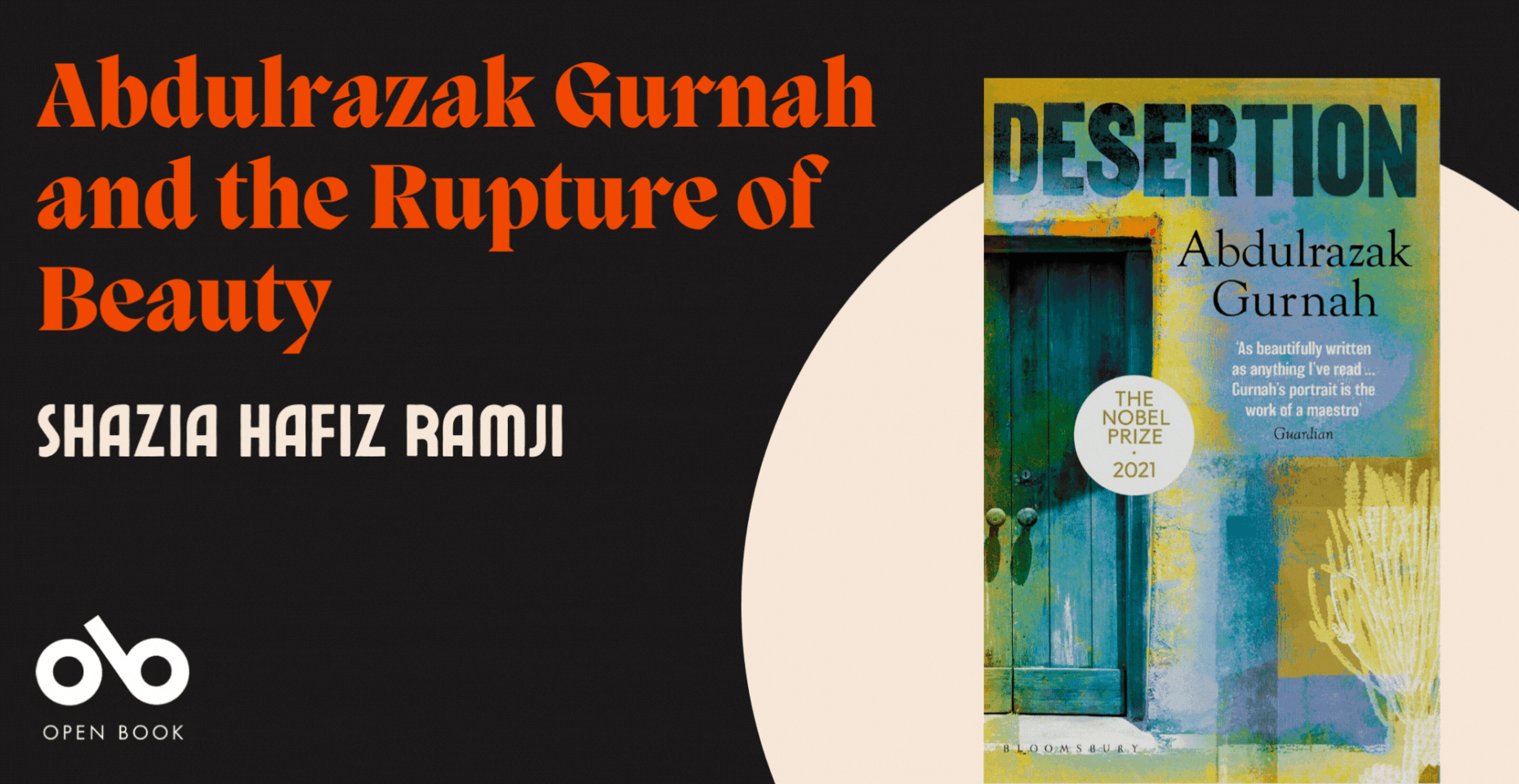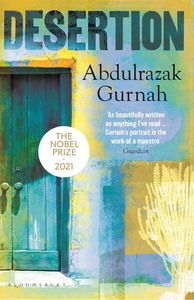Abdulrazak Gurnah and the Rupture of Beauty
By Shazia Hafiz Ramji
As snow fell over Vancouver and Calgary, it was hard not to think about beauty. When we see something beautiful, why do we become still? Why do we feel so calmed? What exactly happens in that moment when we are stunned by beauty? I don’t know about you, but my mind empties out completely so that I feel beheld, entranced, or captivated in some way. Afterwards, a reorientation is necessary; a return to the self.
Recently I finished reading Abdulrazak Gurnah’s Desertion, an intergenerational story about family secrets and multiracial histories in colonial and postcolonial East Africa and England. The novel is focalized through the perspective of a scholar piecing together a secretive inter-racial relationship in his family’s past. Though he’s the telling the story, each chapter is narrated through an omniscient point of view. He remains largely absent from the story – until a moment of beauty pierces truth.
This moment of beauty comes when a white-settler character named Martin encounters the brown woman he falls for. The narrator says that Martin gave her “his full attention with a kind of disbelief at the anguishing beauty of her eyes and the delicate movements of her face” – and then the narrator breaks the fourth wall:
“I don’t know how it would have happened […] Yet I know it did happen, that Martin and Rehana became lovers. Imagination fails me and that fills me with sorrow.”
It is startling to hear the narrator’s voice at this point in the narrative. Beauty is where his story enters. This moment urges the narrator to reconstruct and confront truths about his past that he didn’t want to see or imagine fully. Beauty ruptures truth. The reconstruction of the moment in which Martin and Rehana met welcomes the narrator back into his own life so that he revisits and retells what he chose to forget.
As a substantive book editor, the beginning of the year is a trippy time for preparation. One of the tasks I do after editing is to compile notes to help sell a book I’ve worked on. I can’t help but scoff at book marketing that spins narratives to convince us to read a book because it’s about x significant issue and y social cause (and is therefore supposed to be very important for you to read etc.). I wish I could say instead there is beauty in this book, it will break you open, it is worth it.
Your CanLit News
Subscribe to Open Book’s newsletter to get local book events, literary content, writing tips, and more in your inbox
I have always felt a need to be seduced before reading a book for fun. By “seduction” I mean enchantment, rapture, stillness. I’ve never quite understood it, but Gurnah’s Desertion has led me to ask: without beauty, can a transformational telling even begin?
Because I am one of those people who does end-of-year reviews, this year my review was a list of everything and everyone that was beauty. I’m surprised by how much it all changed me ... beauty can be a total trip.
I choose to see beauty this year.
The views expressed by Open Book columnists are those held by the authors and do not necessarily reflect the views of Open Book.
Shazia Hafiz Ramji’s fiction was shortlisted for the Malahat Review’s 2022 Open Season Awards. Her poetry was shortlisted for the 2021 National Magazine Awards and the 2021 Mitchell Prize for Faith and Poetry. Shazia’s award-winning first book is Port of Being. She lives in Vancouver and Calgary, where she is at work on a novel.





